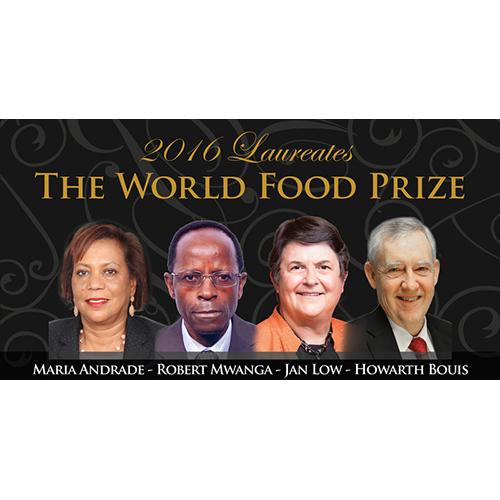Winning the Fight Against Malnutrition
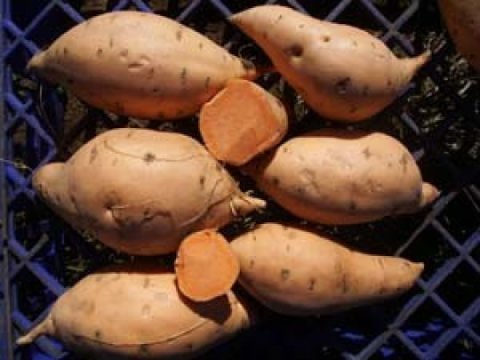
Credit: Sunette Laurie, Agricultural Research Council, South Africa
The World Food Prize organization has honored four scientists, with three specialists, at the International Potato Center (CIP) with the 2016 World Food Prize For Fight Against Malnutrition. A $250,000 prize will be split among the winners.
[See 30 Years of The World Food Prize, here. ]
Dr. Maria Andrade of Cape Verde and Dr. Robert Mwanga of Uganda used genetic material to breed Vitamin A-enriched orange-fleshed sweet potato using genetic material from the CIP and other sources.
Their colleague, Dr. Jan Low of the United States created nutrition studies and programs “that convinced nearly two million households in 10 African countries to plant, purchase and consume this nutritionally fortified food.”
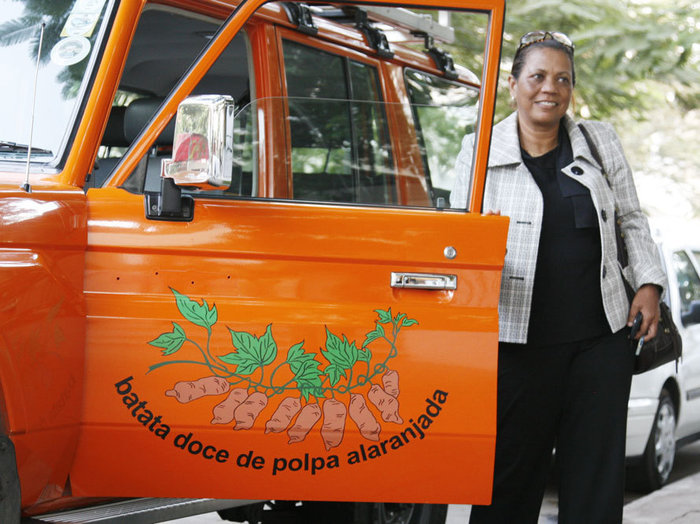
Dr. Maria Andrade – Photo credit: Dan Charles/NPR
Dr. Maria Andrade, a plant scientist, introduced nine drought-tolerant varieties of sweet potato to farmers in Mozambique, a country in southeastern Africa.
The native of the Cape Verde Islands, off the coast of West Africa, received her bachelor’s and master’s degrees in Agronomy and Plant Genetics from the College of Agriculture and Life Sciences at the University of Arizona.
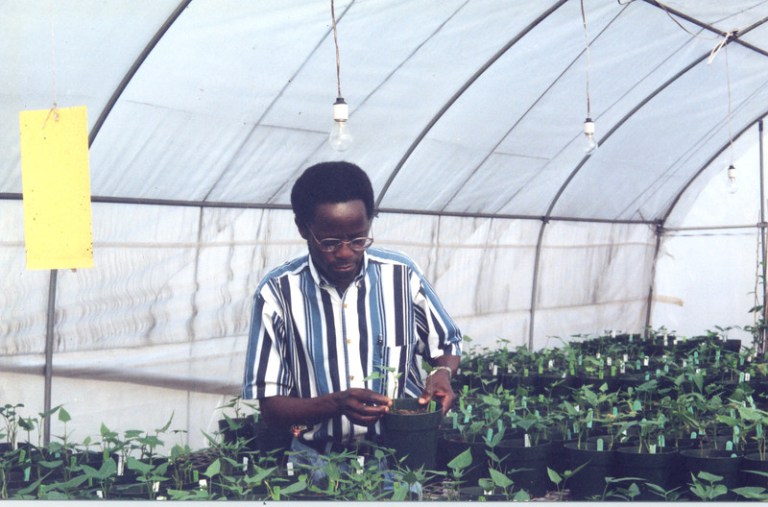
Dr. Robert Mwanga – International Potato Center
Dr. Robert Mwanga, from Uganda, in East Africa, is a plant scientist at the International Potato Center.
Mwanga received undergraduate degree in Botany, Zoology, and Geography from Uganda’s Makerere University. He earned his Plant Breeding and Genetics Ph.D. at North Carolina State University.
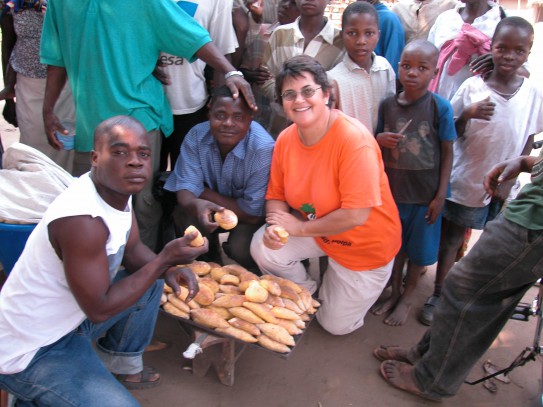
Dr. Jan W. Low with bakers in Mozambique – Credit: Felipe-Zano
Dr. Jan W. Low earned her PhD Agricultural Economics with a Minor in Nutrition during at Cornell University. She is the Principal Scientist, Leader of the Sweetpotato for Profit and Health Initiative, Sweetpotato Action for Security and Health in Africa Project Leader.
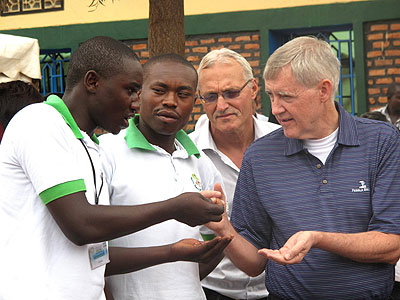
Howarth Bouis, on right, with agronomists from Rwanda. Credit: The New Times S. Rwembeho
The fourth winner Dr. Howarth Bouis, founded HarvestPlus at the International Food Policy Research Institute (IFPRI), and led to putting in place a multi-organization “approach to biofortification as a worldwide plant breeding strategy.”
Under Bouis, “iron and zinc fortified beans, rice, wheat and pearl millet, and vitamin A-enriched cassava, maize and OFSP are being tested or released in over 40 countries.”
Bouis received his BA in Economics from Stanford University and his MA and PhD from Stanford University’s Food Research Institute.
The World Food Award celebrates “countering world hunger and malnutrition through biofortification: the process of breeding critical vitamins and micronutrients into staple crops.”
The World Food Prize is the foremost international award recognizing — without regard to race, religion, nationality, or political beliefs — the achievements of individuals who have advanced human development by improving the quality, quantity or availability of food in the world.

